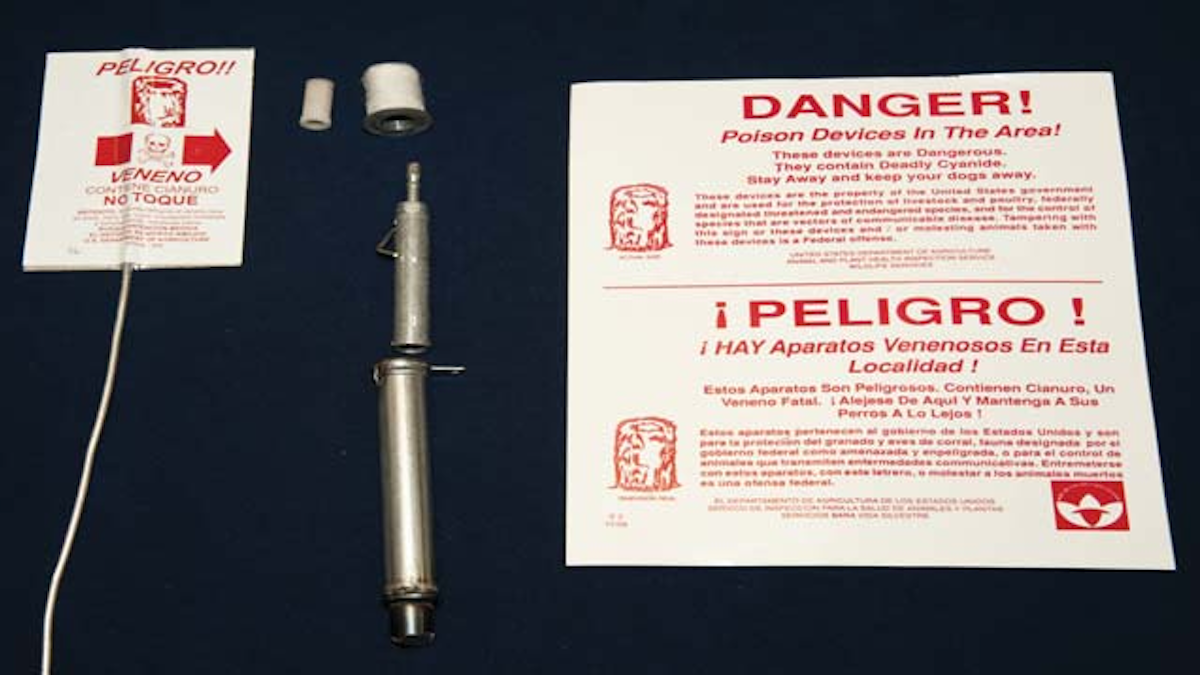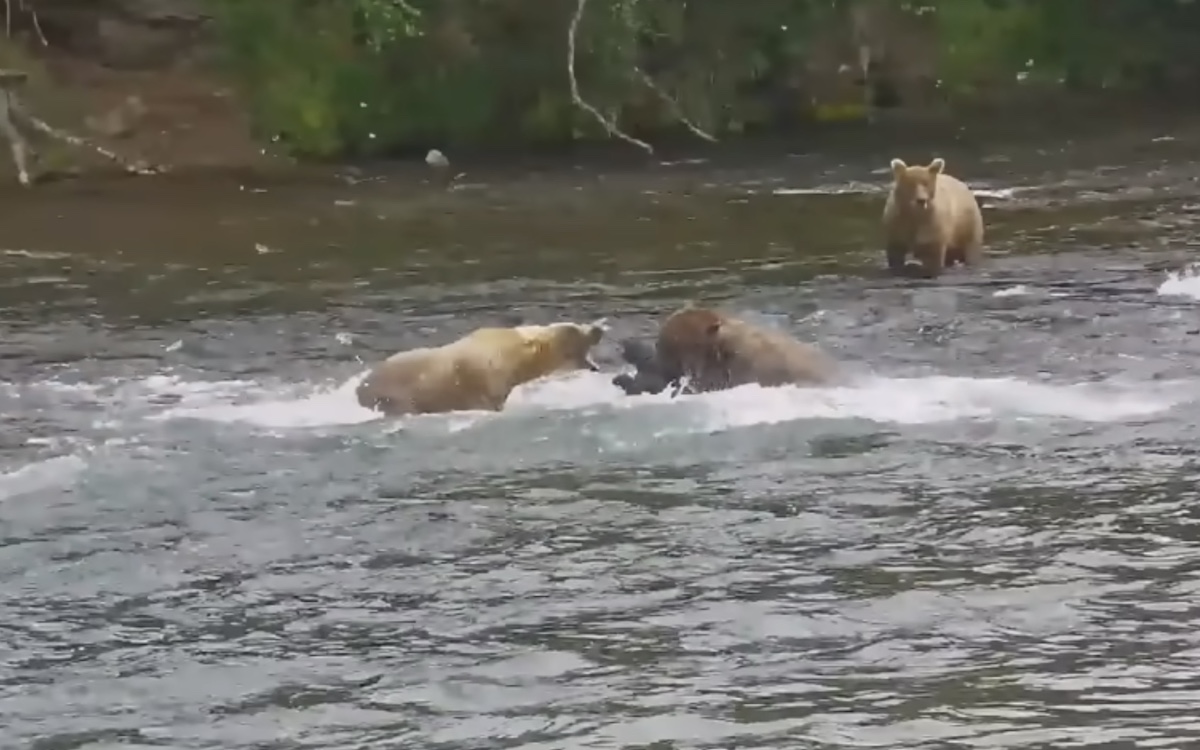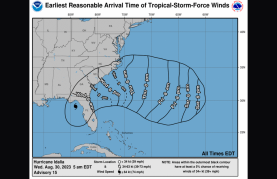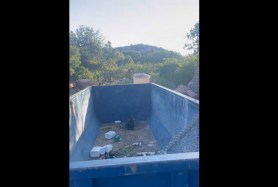

The Bureau of Land Management (BLM) issued a memo last week prohibiting the use of “cyanide bombs” on its lands, but lawmakers and environmental groups say there’s still more to be done to protect people, pets, and wildlife from the deadly devices.
Videos by Outdoors with Bear Grylls
Congressman Jared Huffman, a Democrat from California’s second district, called the rule change “a path forward for families to enjoy the outdoors without the fear of accidentally detonating these devices and suffering the lethal repercussions.” Huffman added that he’d like to see other federal agencies and lawmakers follow suit by advancing measures to ban the “cruel and indiscriminate” devices permanently.
With the Nov. 15 memo, BLM became the last agency within the Department of Interior to prohibit the device from the lands that it manages, but Huffman said other federal departments like the Department of Agriculture need to follow suit. While the memo specifies that agents with the USDA’s Wildlife Services cannot use the devices on BLM land, the USDA has not made its own rule, meaning agents can still use it where it is still allowed.
The M-44 Cyanide Trap resembles a sprinkler head when it’s staked into the ground, but instead of spraying water, it ejects a cloud of powdered sodium cyanide when triggered. While they have long been used to kill predators stalking livestock, critics say they’re too “indiscriminate” and have caused injuries and deaths of pets and humans alike.
Since 1960, there have been dozens of injuries and a handful of deaths reportedly caused by the device. The most recent and prominent incident happened in March 2017 in Pocatello, Idaho, when 14-year-old Canyon Mansfield inadvertently triggered an M-44 device that had been illegally set on BLM land behind his home. Although Mansfield survived, his dog was killed and his family said he continues to suffer health issues.
In response to the incident, Huffman and other House Democrats have been supporting Canyon’s Law, which would prohibit M-44s from all public lands managed by federal, state, and local governments. The bill has been filed and re-filed in both chambers of Congress since 2017.
In a statement, Brooks Fahy, the executive director of Predator Defense, a wildlife advocacy group devoted to banning M-44s, said the rule change will make BLM’s 193 million acres “immeasurably safer.” Before BLM issued the memo, the organization along with more than 70 other conservation groups petitioned the agency to ban the device.
“Since the Interior Department sees the wisdom of banning cyanide bombs, surely the USDA can, too,” Fahy said. “It’s high time our government steps up and stops putting people’s and animals’ lives at risk. They could save a lot of time, money and suffering by banning all M-44 use immediately.”









